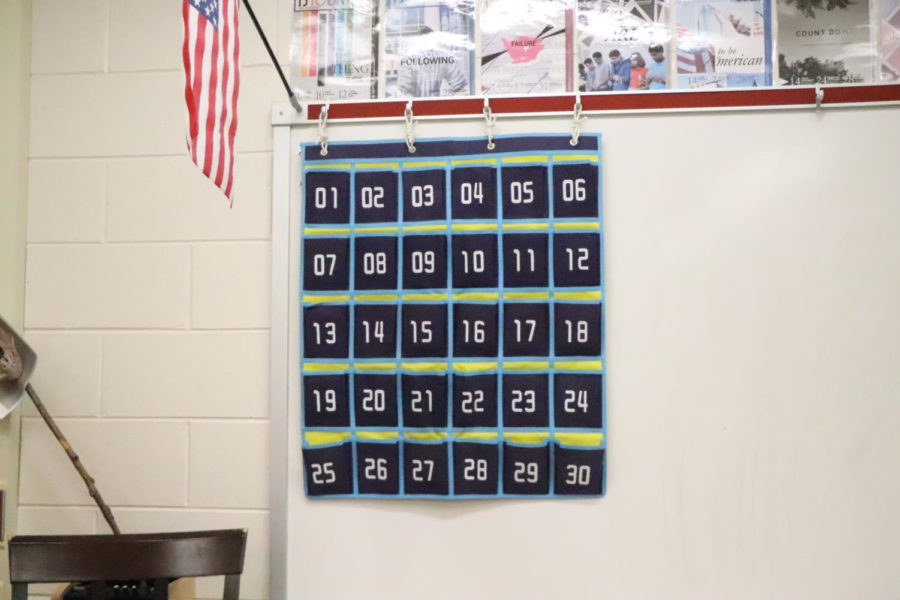Phone usage: a baggable offense?
These bags are very familiar sights in our school, but are they really necessary to manage our phone usage?
August 31, 2022
From your English classrooms to your Calculus BC classrooms, numbered pouches now adorn many whiteboards. Many of my classmates walked into classrooms, looked at the pouches, and remained confused until the teacher explained that they were for holding phones.
This year, Fairfax County Public School’s technology management has begun an era of stricter regulations. From banning executable files to a coveted tool of most teachers in Google Classroom, these are only a few of the many changes to technology policy. The new policy was implemented with a goal in mind to reduce distractions and help students in learning, but is limiting phone access to the scale of borderline confiscation really an effective solution?
However strict a policy may be, the fact is that some students still ignore them anyway. I can observe this very clearly from my position at the back of some classrooms, where students still use their phones.
The introduction of phone bags may make this even worse. A phone bag up for students is a constant symbol of being managed and by taking away freedoms from students, unhappiness will no doubt ensue, resulting in an undertone of rebelliousness.
Additionally, some limited phone usage, such as listening to music, can aid students in learning and concentrating in class. There are also many other benefits of having a phone within reach such as quick fact checks, easy access to Schoology, scanning assignments, google forms and QR codes.
A better method to manage phone usage would be to confiscate phones if being used for long periods of time without teacher discretion. This would be strict but not encourage rebelliousness in the teenage population and set an unhappy vibe across the school, going against the original goal of setting a better learning environment.






![A group of juniors play “Clash Royale” on their phones during lunch. Lunch is the only time when phones are allowed to be out. “I think once we adapt to it, it's not going to be something we miss because [for] everyone moving forward, that'll have been the policy [since] middle school,” DNA science and biology teacher Aubrie Holman said.](https://www.tjtoday.org/wp-content/uploads/2025/09/IMG_6621-2-e1758016994220-300x239.jpeg)